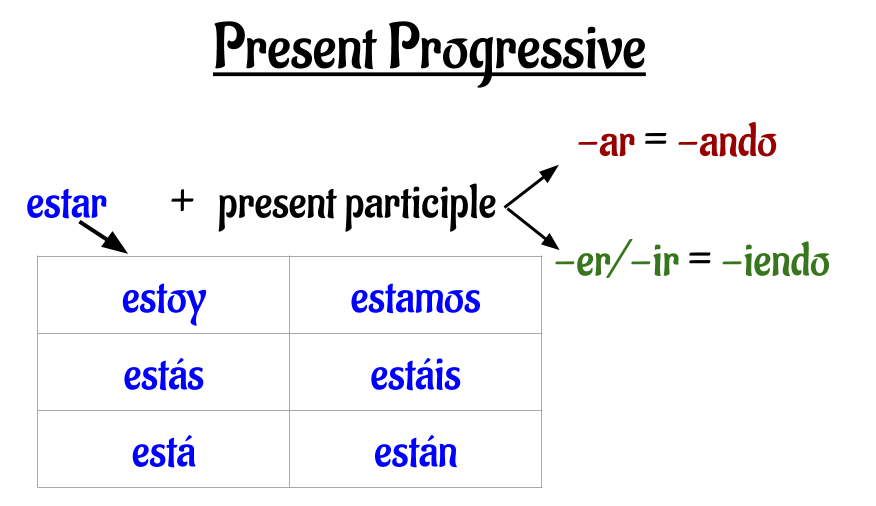El Presente Progresivo
What the function is in language:
The Present Progressive is used to communicate about events that are currently in progress.
In English the present progressive is used to communicate what is being done now, in the moment. It is formed by using the verb "to be" and another verb with "-ing" on the end.
In Spanish, it is formed by using the correct form of the verb estar and the verb that follows will have -ando or -iendo replacing the -ar or -er/ir verb ending. This helps communicate what is happening in the moment.
In Spanish, it is formed by using the correct form of the verb estar and the verb that follows will have -ando or -iendo replacing the -ar or -er/ir verb ending. This helps communicate what is happening in the moment.
How to form the Present Progressive:
hablar --> hablando
(hablar - ar + ando)
comer --> comiendo
(comer - er + iendo)
vivir --> viviendo
(vivir - ir + iendo)
Examples:
Juan está jugando un juego de mesa.
Juan is playing a board game.
Mi amigo está escribiendo una carta a su novia.
My friend is writing a letter to his girlfriend.
Yo estoy viviendo con mi tía.
I am living with my aunt.
(hablar - ar + ando)
comer --> comiendo
(comer - er + iendo)
vivir --> viviendo
(vivir - ir + iendo)
Examples:
Juan está jugando un juego de mesa.
Juan is playing a board game.
Mi amigo está escribiendo una carta a su novia.
My friend is writing a letter to his girlfriend.
Yo estoy viviendo con mi tía.
I am living with my aunt.

